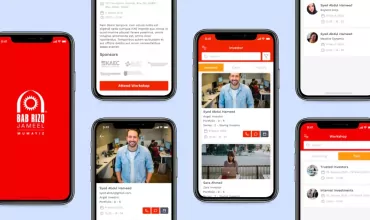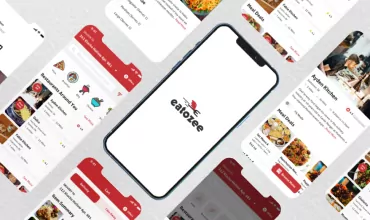HIPAA Compliance in Software for Healthcare

Table of Contents
There are certain organizations in the US, which disclose an individual’s personal health information (PHI) and are required to meet the Health Insurance Portability and Accountability Act (HIPAA) that was executed in 1996.
Certain entities and healthcare services like chiropractors, nursing homes, clinics, pharmacies, and other hospitals are subject to HIPAA. These Healthcare Businesses can utilize secure IT Infrastructure to amend by the rules of the Act.

In 2009, the United States Congress passed the Health Information Technology for Economic and Clinical Health Act (HITECH), which introduced harsher punishments for HIPAA breaches, and increased the number institutions that are to be restricted by HIPAA rules to include business allies of medical offices.
One can maintain proper trust with customers by upholding this law. In order to be compliant, institutions must develop systems and applications to meet HIPAA privacy and security standards and related administrative, technical, and physical safeguards. Business associates include software distributors, which provide EHR (Electronic Health Records).
EHR and HIPAA
One of the major goals of a company using EHR software is to work with distributors and make them aware of the fact that the protection of patient health information is of great importance. It should meet up to the HIPAA security norms.
- Companies should confirm whether they are covered entities under the HIPAA.
- Proper leadership is vital for the privacy of patient information. HIPAA requires all covered companies to designate an officer for privacy and security.
- Creating electronic folders for the proper documentation of information. Their security measures should be shown clearly and should demonstrate how these measures are being monitored.
- Conduction of a security risk analysis, which compares your security system to what is legally correct.
- Access controls like passwords and PIN codes, to help restrict access to your data
- Proper encryption of data, which makes sure the data can only be read by someone who can encrypt it
- By keeping track of audits, to see who accessed your information and what changes were made.
- Patients have the right to ask for a written notice about how their personal medical information is being used and to view their own health records
There are other HIPAA data security systems that are installed in the covered entities computer systems and networks, including firewalls to protect the system from unauthorized breaches, and electronic auditing systems, which require users to identify themselves, and their access to the data.
Many companies find it beneficial to have HIPAA data security audits performed on a regular basis, on their systems. These can serve to ensure a high level of compliance and also to mitigate penalties for a breach of compliance. These services should be able to deal with patient queries and tackle security problems.
Why is HIPAA important in medical software?
The HIPAA covers various aspects of disclosing an individual’s medical history, payment of services or physical or mental condition of the individual. The rule laid down for privacy prohibits the organization to transfer health related data to other open networks, or downloading it to other remote computers.
The data should also be safeguarded with encryption to negate the possibility of an outside infringement. HIPAA’s security measures will also require detailed auditing capabilities, data back-up procedures and disaster recovery techniques.
HIPAA’s safety measures will also require companies to create and implement a data backup option. Under HIPAA, the healthcare institutions must have an endangerment plan to protect data in case of a crisis, and must guard the exact copies of the protected health information.
The HITECH Act requires all covered institutes to notify the affected individuals and the U.S. Department of Health and Human Services (HHS) in an event of a breach of unsecured protected PHI, which the regulation defines as data that is not secure.
A data breach that has affected more than 500 people must be notified at once to the HHS. Also, the HHS secretary is required to post on an HHS website the list of covered institutes that have reported breaches. A data breach concerning fewer than 500 people must be reported to the HHS secretary annually and to the individuals affected by the breach.
If a business associate is responsible for the data breach, then it must notify the covered entity, which is then expected to take the appropriate action.
Challenges of implementing HIPAA
A few years back, organizations just needed simple anti-virus software and a firewall to keep their data secure. Nowadays, the employees and workers of such healthcare organizations are more spread out. They need access to the required data from anywhere possible, through laptops, mobile phones or other such tools. This enables access of data outside the network area, and hence the organization must ensure safety of these devices used.
There is a need of expensive tools, which need to protect the network from malware and other attacks. Since data is accumulated and constantly growing, managing data would also prove to be a challenge for the company.



